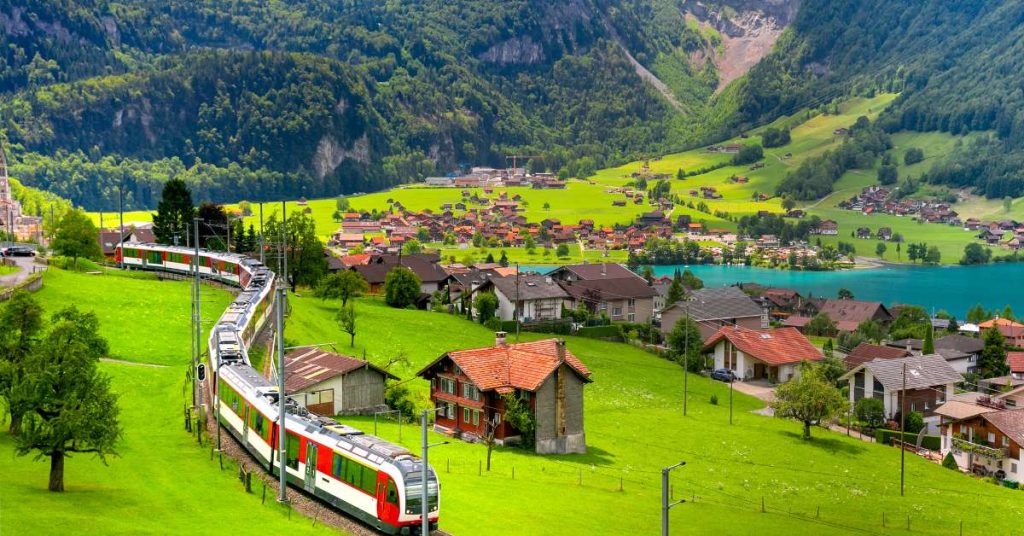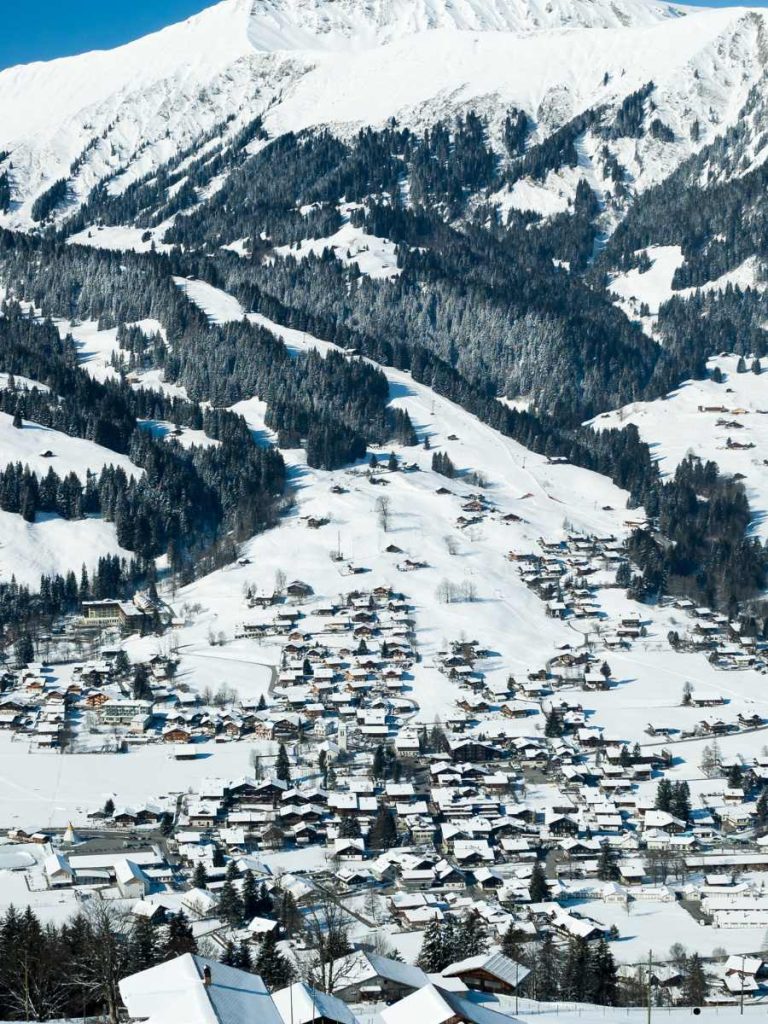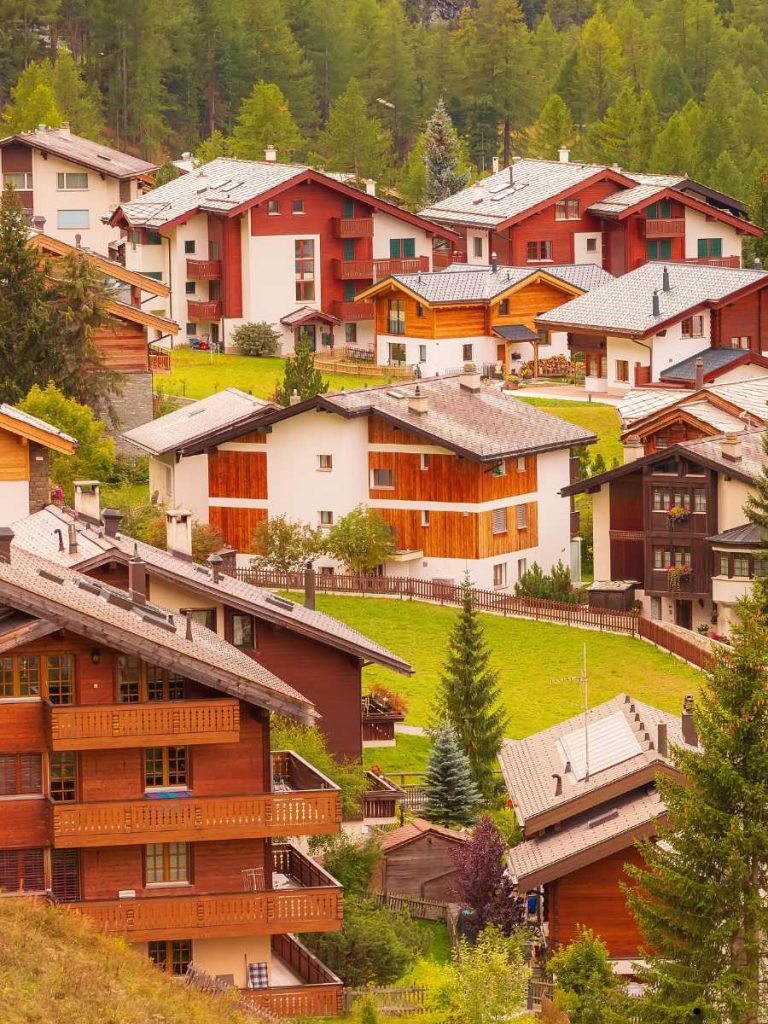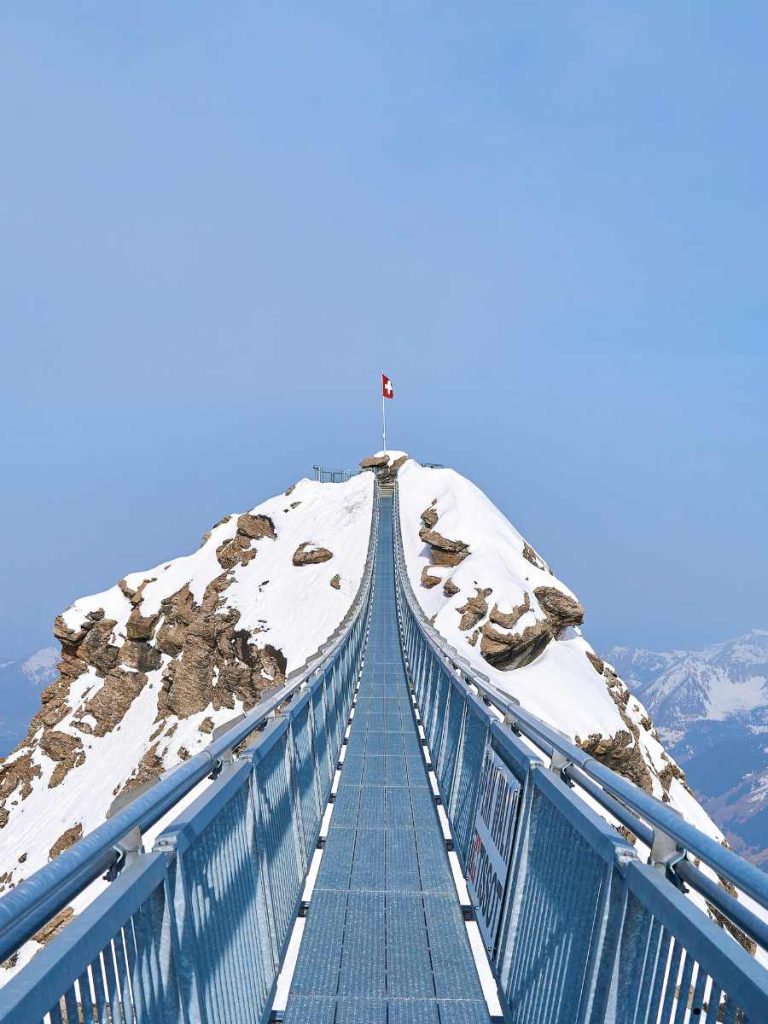Switzerland is often hailed as one of Europe’s most enchanting destinations, a land where towering alpine peaks meet serene lakes and charming villages. With its pristine landscapes, world-class skiing resorts, and quaint medieval towns, it’s easy to see why it captivates travelers from around the globe. But amidst the allure of its breathtaking scenery and high-end luxury, Switzerland’s reputation for complexity and expense can catch many off guard. From understanding its unique transportation system to navigating its cultural nuances, a trip to Switzerland demands a bit of preparation and insight.

Imagine arriving in Zurich with grand plans to explore the Swiss Alps, only to find yourself overwhelmed by the intricacies of Swiss public transport or disappointed by your choice of accommodation. To ensure your Swiss adventure is as smooth and memorable as possible, it’s crucial to steer clear of common mistakes that many first-time visitors make. Whether you’re planning a ski trip to the Matterhorn or a leisurely exploration of Geneva’s lakeside charm, avoiding these pitfalls will help you get the most out of your Swiss experience.
In this comprehensive guide, we’ll uncover the essential mistakes to avoid when visiting Switzerland, from the nuances of planning and budgeting to navigating local etiquette and maximizing your travel experience. By understanding these common missteps and how to avoid them, you’ll be well-prepared to enjoy Switzerland’s unparalleled beauty and sophistication without unnecessary hiccups.
I. Planning and Preparation Mistakes
1. Underestimating Costs
Switzerland is renowned for its high cost of living, and travel expenses are no exception. From the moment you step off the plane, you’ll notice that everything—accommodation, food, transport—comes with a hefty price tag. Many travelers are caught off guard by the expenses and find themselves overspending or missing out on key experiences due to budget constraints.
To avoid financial surprises, it’s essential to budget realistically. Here’s how to manage your costs effectively:
- Accommodation: Swiss hotels, especially in popular areas like Zurich or Lucerne, can be quite expensive. Consider booking in advance and exploring alternatives such as vacation rentals or guesthouses for better rates.
- Dining: Eating out in Switzerland can be costly. Save money by shopping at local markets and preparing some meals yourself. Also, look for lunchtime specials, which are often more affordable.
- Activities: Plan your activities and book tickets early to take advantage of discounts or special offers. Consider purchasing a Swiss Travel Pass, which provides unlimited travel on the country’s public transport network and discounts on various attractions.
2. Ignoring Seasonal Variations

Switzerland’s weather can vary dramatically depending on the season, and failing to plan according to the time of year can lead to disappointment. For instance, visiting ski resorts in summer or expecting warm temperatures in the Alps during winter could impact your experience.
Here’s a quick guide to what you can expect in different seasons:
- Winter (December to February): Perfect for skiing, snowboarding, and cozying up in mountain chalets. Make sure to pack warm clothing and check weather conditions before heading out.
- Spring (March to May): A great time for hiking and exploring lower-altitude regions. Expect milder temperatures and blooming landscapes.
- Summer (June to August): Ideal for hiking, mountain biking, and enjoying Switzerland’s lakes. Bring layers, as temperatures can vary.
- Autumn (September to November): Enjoy beautiful fall foliage and fewer tourists. Pack layers and prepare for variable weather.
3. Overlooking Language Differences
Switzerland has four official languages—German, French, Italian, and Romansh—and language barriers can sometimes be a challenge. While many Swiss people speak English, especially in tourist areas, having a basic understanding of local languages can enhance your experience.
Consider learning a few key phrases in the languages of the regions you plan to visit:
- German: Used predominantly in cities like Zurich and Bern.
- French: Common in Geneva and western Switzerland.
- Italian: Spoken in the southern region, including Lugano.
- Romansh: Less commonly used but present in some areas of eastern Switzerland.
4. Not Researching Regional Differences
Switzerland’s regions are culturally distinct, with varying customs, cuisines, and dialects. Failing to acknowledge these differences can lead to misunderstandings or missed opportunities to fully experience Swiss culture.
For example:
- Zurich: Known for its cosmopolitan vibe and financial district.
- Geneva: Famous for its international organizations and French influence.
- Lugano: Offers an Italian flair with beautiful lakeside views.
Understanding these regional nuances can help you better connect with locals and make more informed travel decisions.
II. Transportation Mistakes

1. Neglecting Swiss Transport Options
Switzerland boasts an excellent public transportation system, including trains, trams, buses, and boats. Relying solely on car rentals can limit your ability to explore the country efficiently. Public transport not only connects major cities but also reaches remote areas, making it an essential part of your travel experience.
To make the most of Swiss transport:
- Trains: Use the Swiss Federal Railways (SBB) for intercity travel. Trains are punctual and offer stunning views of the Swiss countryside.
- Trams and Buses: In cities like Zurich and Basel, trams and buses are convenient for getting around. Purchase a day pass for unlimited travel within the city.
- Boats: Enjoy scenic boat rides on lakes such as Lake Geneva or Lake Lucerne.
2. Misunderstanding Swiss Travel Passes
Swiss Travel Passes are a convenient way to explore the country, but choosing the wrong pass can affect your budget and travel plans. The Swiss Travel Pass offers unlimited travel on the public transport network and discounts on various attractions.
Consider the following options:
- Swiss Travel Pass: Ideal for tourists planning to travel extensively by train, bus, and boat.
- Swiss Half Fare Card: Offers a 50% discount on most public transport and mountain excursions, suitable for travelers making fewer trips.
- Regional Passes: For those focusing on specific areas, such as the Bernese Oberland or Graubünden, regional passes offer tailored benefits.
3. Failing to Book in Advance
Switzerland’s popularity means that transportation and accommodations can fill up quickly, especially during peak seasons. Failing to book in advance can result in higher costs or limited availability.
To avoid this:
- Book Transport Early: Reserve train tickets and transport passes well in advance to secure the best rates.
- Secure Accommodation: Popular cities and tourist spots may have limited availability, so book your stay ahead of time to ensure you get your preferred choice.
III. Accommodation Mistakes

1. Choosing the Wrong Type of Accommodation
Switzerland offers a range of accommodation options, from luxury hotels to charming guesthouses and cozy chalets. Choosing the wrong type of accommodation can affect your comfort and overall experience.
Consider these options:
- Hotels: Ideal for those seeking comfort and convenience, but can be pricey. Look for deals and book early to get the best rates.
- Guesthouses and Hostels: More affordable options that offer a local touch. Great for budget travelers and those looking to meet other tourists.
- Chalets and Vacation Rentals: Perfect for families or groups seeking a homely atmosphere. Provides flexibility and often includes amenities like kitchens.
2. Ignoring Booking Reviews and Ratings
Reviews and ratings are valuable resources when selecting accommodation. Ignoring them can lead to unpleasant surprises and impact your stay.
Here’s how to use reviews effectively:
- Check Multiple Sources: Look at reviews on various platforms like TripAdvisor, Booking.com, and Google.
- Look for Recent Feedback: Recent reviews will give you an accurate picture of current conditions and services.
- Consider the Overall Rating: While individual reviews provide insight, the overall rating helps gauge general satisfaction.
IV. Cultural and Etiquette Mistakes

1. Disregarding Swiss Etiquette
Swiss culture places a high value on etiquette and manners. Disregarding local customs can lead to misunderstandings and affect your interactions with locals.
Key etiquette rules include:
- Punctuality: Being on time is crucial in Switzerland. Arrive promptly for appointments and reservations.
- Greetings: A handshake is the standard greeting. In French-speaking areas, cheek-kissing is also common.
- Behavior: Maintain a respectful demeanor in public places, and avoid speaking loudly or being overly informal.
2. Misunderstanding Dining Customs
Swiss dining customs may differ from what you’re used to, and not adhering to them can lead to awkward situations.
Here’s what to keep in mind:
- Tipping: Service charges are often included in the bill, but rounding up or leaving a small tip is appreciated.
- Table Manners: Keep your hands on the table (but not your elbows) and wait for everyone to be served before starting your meal.
3. Ignoring Local Customs and Traditions
Switzerland has rich cultural traditions and festivals that are worth experiencing. Ignoring these can mean missing out on unique aspects of Swiss culture.
Examples include:
- Fasnacht (Carnival): Held in Basel and other cities, featuring parades, costumes, and music.
- Swiss National Day: Celebrated on August 1st with fireworks, parades, and traditional music.
Participate respectfully and learn about the customs beforehand to fully appreciate these cultural events.
V. Activity and Attraction Mistakes

1. Not Planning Ahead for Popular Attractions
Switzerland is home to many iconic attractions, such as the Matterhorn and Lake Geneva. Failing to plan and book ahead can lead to long queues or missed opportunities.
To make the most of your visit:
- Book Tickets in Advance: Purchase tickets for popular attractions and activities online to avoid long wait times.
- Plan Your Itinerary: Research and plan your visit to major attractions, considering opening hours and peak times.
2. Overlooking Local Experiences
While Switzerland is known for its major sights, local experiences can offer a richer, more immersive travel experience. Don’t miss out on unique Swiss activities.
Consider:
- Cheese-Making Tours: Learn about Swiss cheese-making traditions and sample local varieties.
- Local Markets: Visit markets to experience local food, crafts, and culture.
3. Ignoring Safety Precautions
Switzerland’s outdoor activities, like hiking and skiing, come with their own set of safety considerations. Ignoring these precautions can lead to accidents or injuries.
Follow these safety tips:
- Hiking: Stick to marked trails, check weather conditions, and carry essential gear.
- Skiing: Ensure you have proper equipment and are aware of your skill level. Follow all safety guidelines and use designated slopes.
VI. Dining and Culinary Mistakes

1. Overlooking Swiss Cuisine
Swiss cuisine offers a delightful array of dishes, from fondue to raclette. Sticking only to familiar foods can cause you to miss out on authentic Swiss flavors.
Must-try dishes include:
- Fondue: A traditional dish made of melted cheese served with bread and vegetables.
- Raclette: Melted cheese served over potatoes, vegetables, and pickles.
- Rösti: A crispy potato dish often served as a side or breakfast item.
2. Ignoring Dietary Restrictions
Switzerland is known for its culinary diversity, but finding options for dietary restrictions can be challenging if not planned properly.
To accommodate dietary needs:
- Research Dining Options: Look for restaurants that offer vegetarian, vegan, or gluten-free options.
- Communicate Clearly: Use translation apps or learn key phrases to convey dietary restrictions to restaurant staff.
VII. Communication Mistakes
1. Not Using Basic Local Language Skills
While English is widely spoken, learning a few basic phrases in local languages can enhance your interactions and show respect for Swiss culture.
Key phrases to learn:
- German: “Guten Tag” (Good day), “Bitte” (Please), “Danke” (Thank you)
- French: “Bonjour” (Hello), “Merci” (Thank you), “S’il vous plaît” (Please)
- Italian: “Buongiorno” (Good morning), “Grazie” (Thank you), “Per favore” (Please)
2. Misinterpreting Signs and Information
Swiss public transport and facilities often use multilingual signs, but understanding them can sometimes be confusing.
To navigate effectively:
- Read Carefully: Pay attention to symbols and instructions on signs.
- Ask for Help: Don’t hesitate to ask for assistance if you’re unsure about something.
VIII. Financial Mistakes
1. Using Only Cash
Switzerland is a cash-friendly country, but using only cash can limit your convenience and security.
Consider:
- Credit and Debit Cards: Widely accepted and convenient for larger purchases.
- Mobile Payments: Use apps like Apple Pay or Google Pay for contactless transactions.
2. Ignoring Exchange Rates and Fees
Currency exchange rates and fees can impact your budget if not managed properly.
Tips for handling currency:
- Exchange Money Wisely: Use reputable exchange services and be aware of fees.
- Monitor Your Bank Fees: Check with your bank about international transaction fees and foreign exchange rates.
IX. Conclusion
Navigating the beauty and intricacies of Switzerland can be a rewarding experience if you’re well-prepared and mindful of common mistakes. By understanding and avoiding these pitfalls, you’ll ensure a smoother, more enjoyable trip, allowing you to fully immerse yourself in the enchanting Swiss landscape and culture. From managing your budget and transportation to respecting local customs and savoring Swiss cuisine, each aspect of your trip can be optimized with a little forethought.
Switzerland’s charm lies not only in its stunning scenery but also in its rich cultural heritage and sophisticated way of life. Embrace the unique experiences, plan wisely, and let Switzerland’s natural and cultural wonders captivate you. With these tips, you’ll be ready to make the most of your Swiss adventure and create memories that will last a lifetime.

